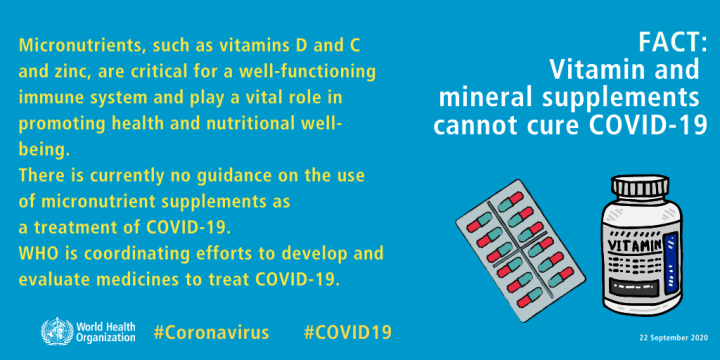More than a year into the coronavirus pandemic, the jury is still out on the link between vitamin D and COVID-19.

Vitamin D is well-known for its role in keeping bones, teeth and muscles healthy by promoting the body’s absorption of calcium. It is also critical for the proper functioning of our immune system, which protects the body from viruses and bacteria.
Over the past year, a number of different studies have looked at the impact vitamin D levels and supplements could have on COVID-19 illness. While the data is promising, most experts say it is inconclusive.
“The association between vitamin D and COVID-19 is intriguing, but to date it’s not clear what that association means,” said Donald Vinh, an infectious disease specialist and a medical microbiologist at the McGill University Health Centre.
A new study done in Chicago of more than 4,000 people found that the risk of testing positive for COVID-19 was higher for Black people with lower vitamin D levels. This research was published in the medical journal JAMA Network Open last week.

In October 2020, a small-scale study of 200 COVID-19 patients at a hospital in Spain suggested that more than 80 per cent had a vitamin D deficiency.
Another small study of 129 COVID-19 patients in New York showed that supplementation may prevent severe COVID-19 outcomes, such as death and mechanical ventilation, in patients with lower levels of vitamin D.
That study was presented virtually at the Endocrine Society’s annual meeting on March 20, but is yet to be peer-reviewed and published.
“Basically the lower the vitamin D level, more specifically 25-hydroxyvitamin D, the higher the risk that you might have COVID-19,” said Sweta Chekuri, study co-author and assistant professor at the Albert Einstein College of Medicine in New York City.
- ‘She gets to be 10’: Ontario child’s heart donated to girl the same age
- Bird flu risk to humans an ‘enormous concern,’ WHO says. Here’s what to know
- Buzz kill? Gen Z less interested in coffee than older Canadians, survey shows
- Canada updating sperm donor screening criteria for men who have sex with men
However, Vinh is not convinced whether the emerging data points to a causal relationship – with a cause and effect – between the two.
“There hasn’t been any strong, compelling evidence that what we see with vitamin D levels in the blood necessarily means anything biologically for the (COVID-19) disease,” he told Global News.
Canada has authorized two drugs for treating COVID-19 — remdesivir and bamlanivimab — while a number of other therapeutics are also being used and experimented with as part of clinical trials across the country.
There is currently no guidance on the use of micronutrient supplements, such as vitamins D and C and zinc, as a treatment for COVID-19, according to the World Health Organization (WHO).
In February, the results of a study done in Brazil showed that among the 240 hospitalized COVID-19 patients, a single high dose of vitamin D did not significantly reduce the length of stay in the hospital.
In any case, Sarah Baron, a physician and hospitalist at Montefiore Health System in New York, recommends giving supplements to patients with known low levels of vitamin D.
“It not only may help with their bone health, maybe it will help with COVID-19 too,” she said.
Despite its role in boosting immunity, vitamin D is “not a body armour against COVID-19,” said Richard Bazinet, a professor in the department of nutritional sciences at the University of Toronto.
“I think we should be cautious about getting too excited about this.”

Bazinet said an argument could also be made for a reverse causation, meaning it’s actually the worse COVID-19 outcome that is causing the lowering of the vitamin D levels.
“People get sick, they stay in their house, they don’t eat very well, they’re out of the sunlight — and then the sicker people come into the hospital and do worse,” Bazinet explained.
Weather and COVID-19
Sun exposure is considered the best natural source of vitamin D.
There is optimism that the onset of spring and sunny weather in Canada and other parts of the northern hemisphere could see a decline in COVID-19 cases.
As is the case with the flu season, studies suggest that respiratory droplets that transmit COVID-19 tend to survive longer in cold, dry air and low humidity.
So there is a slightly higher risk of getting COVID-19 outdoors in winter than spring or summer, experts say.

But rather than the change in weather, our human behaviour with people spending more time outdoors, where there is better air circulation, will play a role in curbing the spread, said Vinh.
The ultraviolet (UV) light from the sun also has a sterilizing effect on the novel coronavirus.
“The change in season is going to bring down the rates of coronavirus for several reasons, but I don’t think any of them are going to be directly related to vitamin D levels,” he said.
Being deficient in vitamin D has its downsides and risks, including bone weakness (osteoporosis) in adults and a similar bone deformity illness, called rickets, in children.
Overdosing and vitamin D toxicity is also a concern. The recommended daily intake for most adults is 600 IU.
Too much vitamin D raises the level of calcium in your blood, which can cause nausea, vomiting, poor appetite, constipation, weakness and weight loss. Vitamin D toxicity can also lead to kidney problems and bone pain.
— With files from Global News’ Rachael D’Amore






Comments